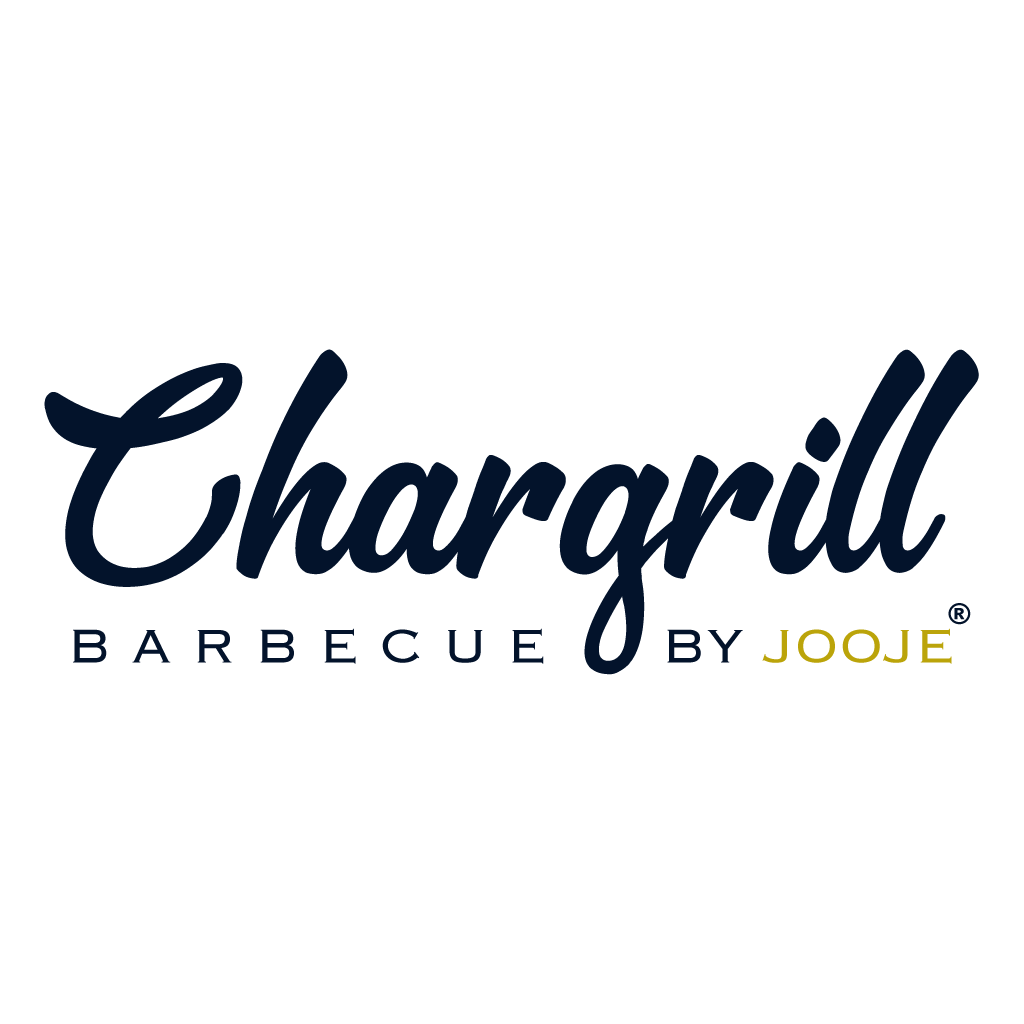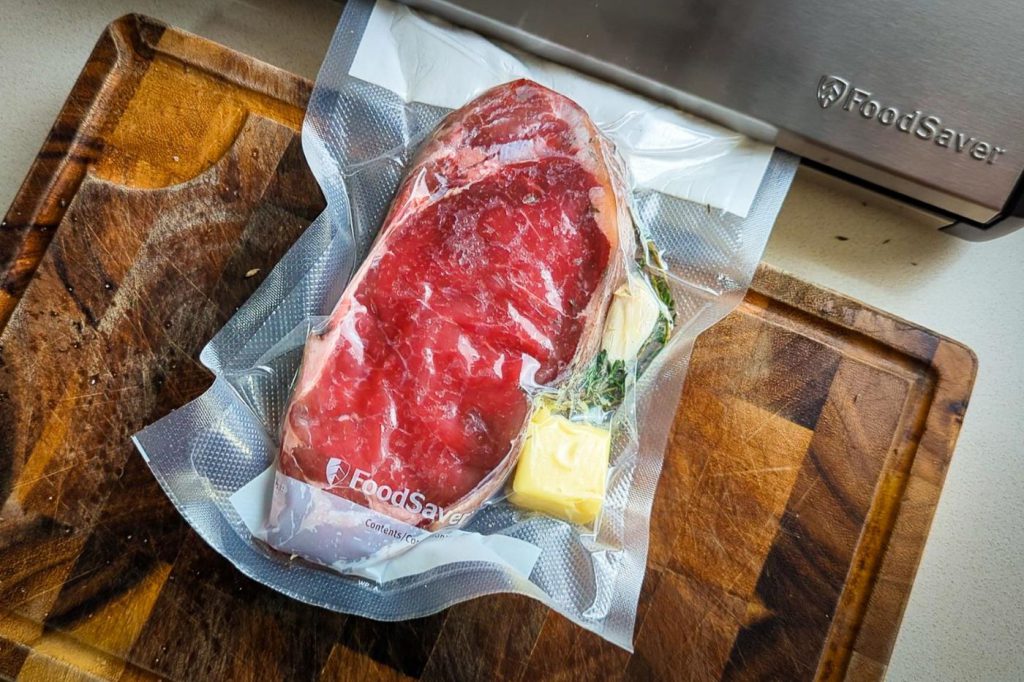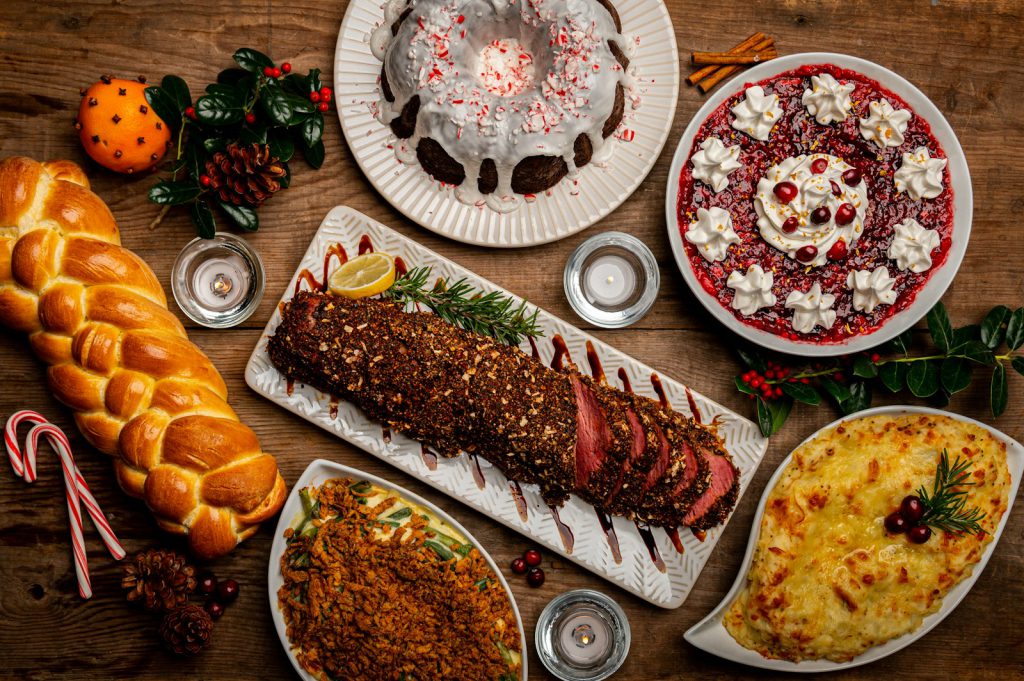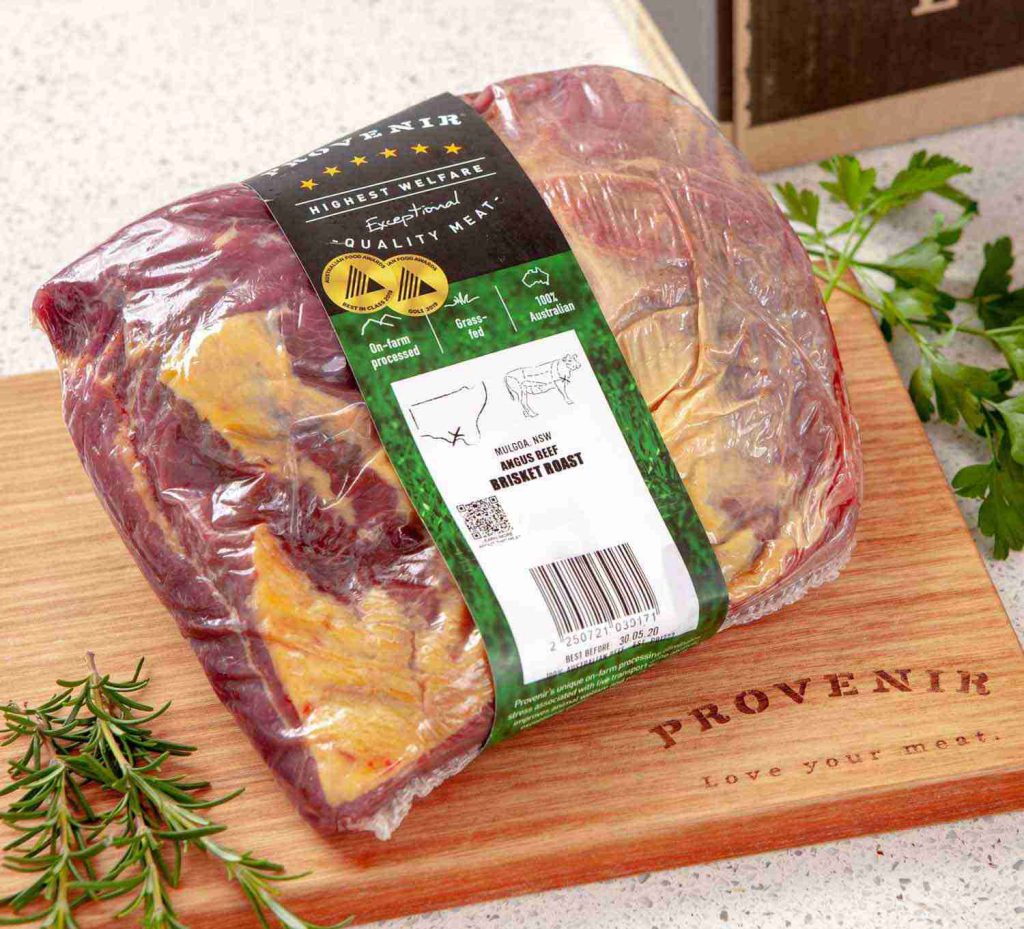Vacuum packing has revolutionised the way we store and preserve food, particularly BBQ products like smoked brisket and huge cooked beef ribs. This method extends shelf life and maintains freshness by removing air, which reduces oxidation and the growth of bacteria. However, there are numerous myths and misconceptions surrounding the shelf life of vacuum-packed BBQ products. This article aims to clarify these myths and provide accurate information based on scientific facts and industry best practices.
Moreover, vacuum packing aids in reducing food waste, a critical consideration in both household and commercial settings. By extending the shelf life of BBQ products, vacuum packing allows for better meal planning and reduces the likelihood of spoilage. This not only has economic benefits but also contributes to more sustainable food consumption practices. As consumers become increasingly conscious of their environmental footprint, methods like vacuum packing are gaining popularity.
Understanding Vacuum Packing
Vacuum packing involves sealing different types of food, including low FODMAP meals in an airtight environment by removing air from the packaging. This method slows down the oxidation process and inhibits the growth of aerobic bacteria, thereby extending the product’s shelf life. The process is particularly beneficial for BBQ products, which often have high-fat content that is prone to spoilage.
The vacuum packing process begins with placing the BBQ product in a specially designed plastic bag. The air is then extracted using a vacuum sealer, creating a vacuum inside the bag. This step is crucial as oxygen is a primary factor in the spoilage of food. Without oxygen, the growth of aerobic bacteria and fungi is significantly reduced. Additionally, the absence of air prevents oxidation, which can cause the food to become rancid, especially in high-fat products like brisket and ribs.
However, it is essential to understand that vacuum packing does not make food completely sterile. Anaerobic bacteria, such as Clostridium botulinum, can thrive in low-oxygen environments and pose serious health risks. Therefore, while vacuum packing extends the shelf life of BBQ products, it must be complemented with proper storage conditions and hygiene practices to ensure food safety.
Table: Benefits of Vacuum Packing
| Benefit | Description |
|---|---|
| Extended Shelf Life | Reduces oxidation and bacterial growth, keeping food fresh for longer. |
| Preservation of Flavour | Maintains the original flavour and texture of the BBQ products. |
| Space Efficiency | Compact packaging makes storage more efficient. |
| Cost Savings | Reduces food waste and allows for bulk purchasing and storage. |
| Versatility | Suitable for various types of food, from meats to vegetables and even liquids. |
Furthermore, vacuum packing can enhance marination. When BBQ products are vacuum-packed with marinades, the lack of air allows the flavours to penetrate the meat more deeply and quickly. This results in more flavorful and tender BBQ dishes, enhancing the overall culinary experience.
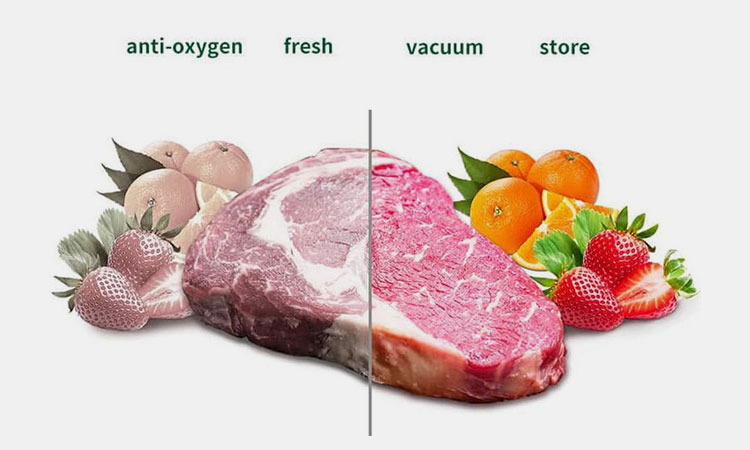
Shelf Life of Vacuum Packed BBQ Products
The shelf life of vacuum-packed BBQ products varies depending on several factors, including the type of meat, cooking method, and storage conditions. Generally, vacuum-packed smoked brisket and cooked beef ribs can last up to 2-3 weeks in the refrigerator and up to 6 months in the freezer.
Different types of BBQ meats have varying shelf lives due to their unique characteristics. For instance, smoked brisket, which undergoes a long smoking process, tends to have a longer shelf life compared to grilled meats because the smoking process imparts preservative properties. The type of wood used in smoking, the duration, and the temperature all play a role in determining how long the meat will stay fresh.
List: Factors Affecting Shelf Life
- Type of meat (e.g., beef, pork, chicken): Different meats have different rates of spoilage. Beef generally has a longer shelf life compared to poultry.
- Cooking method (e.g., smoked, grilled, roasted): Smoking and curing processes can extend shelf life due to their preservative effects.
- Storage temperature (e.g., refrigerator, freezer): Lower temperatures significantly slow down the growth of bacteria. Proper refrigeration is essential to maintain the shelf life of vacuum-packed products.
- Packaging quality (e.g., thickness of vacuum seal, integrity of the seal): The quality of the vacuum seal plays a crucial role. A thicker, well-sealed bag ensures minimal air and moisture penetration, which helps preserve the meat longer.
Table: Estimated Shelf Life of Vacuum Packed BBQ Products
| Product | Refrigerator (2-4°C) | Freezer (-18°C) |
|---|---|---|
| Smoked Brisket | 2-3 weeks | Up to 6 months |
| Cooked Beef Ribs | 2-3 weeks | Up to 6 months |
| Pulled Pork | 2-3 weeks | Up to 6 months |
| Chicken Wings | 1-2 weeks | Up to 6 months |
| Sausages | 1-2 weeks | Up to 6 months |
Understanding these factors helps in making informed decisions about how long to store your BBQ products and ensures they remain safe and delicious for consumption.

Common Myths About Vacuum Packed BBQ Products
Despite the benefits, there are several myths about vacuum-packed BBQ products that can lead to confusion and improper storage practices.
Myth 1: Vacuum Packing Eliminates All Bacteria
While vacuum packing significantly reduces the growth of aerobic bacteria, it does not eliminate anaerobic bacteria such as Clostridium botulinum, which can thrive in low-oxygen environments. Proper cooking and storage practices are still essential. For instance, foods that are vacuum-packed should still be stored at the appropriate temperatures to inhibit the growth of harmful bacteria.
Myth 2: Shelf Life is Infinite
Vacuum packing extends shelf life but does not make food immortal. BBQ products still require proper refrigeration or freezing and should be consumed within recommended time frames to ensure safety and quality. Misunderstanding this can lead to consuming spoiled food, which can cause foodborne illnesses.
Myth 3: Vacuum-Packed Food Doesn’t Need Refrigeration
Some people believe that vacuum-packed foods can be stored at room temperature. This is not true for most BBQ products. While vacuum packing reduces the need for immediate refrigeration, it does not replace it entirely. Proper refrigeration or freezing is still necessary to maintain the safety and quality of the food.
List: Common Misconceptions
- Vacuum-packed food is sterile: Vacuum packing does not kill bacteria; it only inhibits their growth by removing air.
- Extended shelf life means endless freshness: Over time, even vacuum-packed foods can degrade in quality.
- One method fits all: Different types of food require specific handling and storage practices.
Case Study: The Danger of Botulism
A notable example highlighting the risks associated with improper vacuum packing is botulism. Botulism is a rare but severe illness caused by Clostridium botulinum bacteria. These bacteria can produce toxins in low-oxygen environments, such as those created by vacuum packing, especially if the food is not stored correctly. Therefore, it is crucial to understand that vacuum packing does not guarantee safety against all types of bacteria.
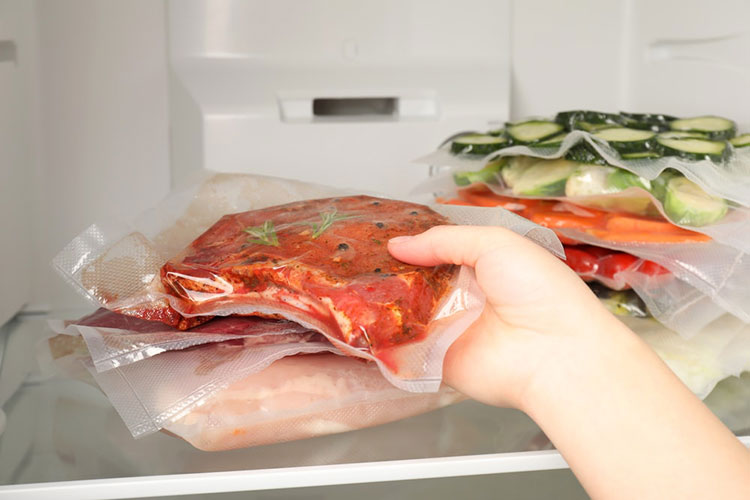
Best Practices for Storing Vacuum Packed BBQ Products
To maximise the shelf life of vacuum-packed BBQ products, it is crucial to follow best storage practices. Proper storage ensures that the meat remains safe to eat and retains its quality.
List: Storage Tips
- Refrigeration: Store vacuum-packed BBQ products at or below 4°C (39°F). This temperature range slows down the growth of bacteria significantly.
- Freezing: For long-term storage, freeze vacuum-packed BBQ products at -18°C (0°F) or lower. Freezing at this temperature helps maintain the meat’s quality and prevents spoilage.
- Labelling: Clearly label packages with the packing date to keep track of storage duration. This practice helps in managing the stock and ensures older items are used first.
- Avoid Cross-Contamination: Store raw and cooked products separately to prevent contamination. Raw meat can harbor bacteria that might contaminate cooked food, leading to potential foodborne illnesses.
- Check Seals Regularly: Ensure that the vacuum seal remains intact. Any breach in the seal can introduce air and moisture, compromising the quality and safety of the product.
- Use Moisture Absorbers: Including a moisture absorber in the package can help in extending the shelf life by reducing the chance of moisture buildup inside the vacuum pack.
Detailed Example: Home Storage Practices
For individuals who enjoy preparing BBQ at home, it is essential to follow these practices meticulously. After vacuum packing the BBQ products, place them in the coldest part of the refrigerator or freezer. It is advisable to periodically check the temperature settings of these storage units to ensure they are operating at optimal levels. In addition
to monitoring temperatures, ensure that the storage units are not overfilled, as overcrowding can lead to uneven cooling and increase the risk of spoilage.
Another best practice is to avoid exposing vacuum-packed products to temperature fluctuations, which can occur when taking items in and out of the freezer or refrigerator frequently. This can lead to condensation forming inside the packaging, which can compromise the vacuum seal and promote bacterial growth.
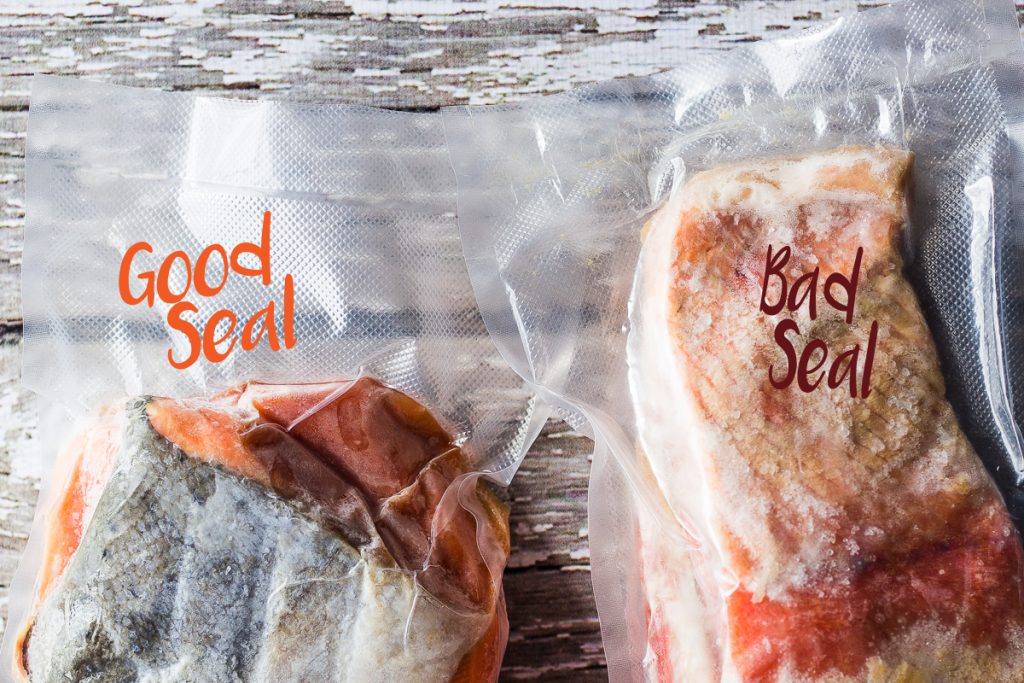
Identifying Spoilage in Vacuum Packed BBQ Products
Even with vacuum packing, BBQ products can spoil if not stored correctly. It is crucial to be able to identify the signs of spoilage to avoid consuming unsafe food. Spoiled food can cause foodborne illnesses, which can be particularly severe for vulnerable populations such as young children, the elderly, and those with compromised immune systems.
Signs of Spoilage
- Off Smell: A sour or rancid odour is a strong indicator of spoilage. Fresh BBQ products typically have a pleasant, smoky aroma, while spoiled meat will have an unmistakably bad smell.
- Slimy Texture: A sticky or slimy surface on the meat indicates bacterial growth. While some moisture can be expected, an excessively slimy texture is a red flag.
- Discoloration: Unusual colours such as grey, green, or black suggest spoilage. Fresh BBQ meat usually has a consistent, appetizing colour, while spoiled meat will show signs of discoloration.
- Gas Formation: If the vacuum pack appears bloated, it might be due to gas produced by bacterial activity. This is a clear sign that the meat is no longer safe to eat.
Table: Signs of Spoilage and Causes
| Sign | Description | Cause |
|---|---|---|
| Off Smell | A sour or rancid odour indicates spoilage. | Bacterial or fungal growth |
| Slimy Texture | A sticky or slimy surface is a sign of bacterial growth. | Bacterial activity |
| Discoloration | Unusual colours such as grey or green suggest spoilage. | Oxidation and bacterial growth |
| Gas Formation | Bloated packaging indicates gas production. | Anaerobic bacterial growth |
Example: Identifying Spoiled BBQ Ribs
Imagine you have a vacuum-packed set of BBQ ribs in your refrigerator. Upon inspection, you notice a slight swelling in the packaging and a faint sour smell when you open it. The meat feels slimy to the touch and has developed a greenish hue. These signs indicate that the ribs are spoiled and should be discarded immediately to avoid the risk of food poisoning.
7. Impact of Ingredients on Shelf Life
The ingredients used in BBQ products can also affect their shelf life. For instance, products with high salt or sugar content tend to have a longer shelf life due to their preservative properties. However, adding marinades or sauces can introduce additional moisture and bacteria, potentially reducing shelf life.
Salt and Sugar as Preservatives
Salt and sugar are traditional preservatives that work by drawing moisture out of the meat, creating an environment that is inhospitable to bacteria. BBQ products like dry-rubbed smoked brisket benefit from this effect, as the salt in the rub helps to preserve the meat. However, it’s important to note that while salt and sugar extend shelf life, they do not eliminate the need for proper storage practices.
Marinades and Moisture
Marinades, while enhancing flavour, introduce additional moisture to the meat. This can create pockets where bacteria can grow, especially if the meat is not vacuum-sealed properly. It is crucial to ensure that marinated BBQ products are vacuum-packed with high-quality seals and stored at appropriate temperatures to mitigate this risk.
List: Ingredients That Affect Shelf Life
- Salt: Acts as a preservative by drawing out moisture.
- Sugar: Similar to salt, it helps in preserving meat by reducing water activity.
- Acidic Components (e.g., vinegar, citrus): Can help in preservation by lowering the pH and creating an environment less suitable for bacterial growth.
- Moisture-Rich Ingredients (e.g., sauces, marinades): Can reduce shelf life if not properly managed.
Example: Smoked Brisket with Dry Rub vs. Marinated Brisket
A smoked brisket with a dry rub consisting of salt, sugar, and spices will generally have a longer shelf life compared to a marinated brisket. The dry rub not only adds flavour but also helps in preserving the meat by reducing its moisture content. On the other hand, a marinated brisket, while flavorful, will require more careful vacuum sealing and storage to ensure it remains safe to eat.
Scientific Insights on Vacuum Packing
Research studies have shown that vacuum packing can significantly extend the shelf life of BBQ products while preserving their nutritional quality. Studies indicate that vacuum-packed smoked meats can maintain their quality for up to several weeks when stored properly.
Research Findings
Several studies have been conducted to evaluate the effectiveness of vacuum packing in extending the shelf life of various food products. One study published in the Journal of Food Science found that vacuum-packed smoked meats retained their sensory qualities and had reduced bacterial growth compared to non-vacuum-packed meats. The study highlighted that vacuum packing, combined with proper refrigeration, can significantly slow down the spoilage process.
Another research published in Meat Science highlighted the effectiveness of vacuum packing in maintaining the texture and flavour of cooked beef ribs over an extended period. The study showed that vacuum-packed ribs stored in a refrigerator remained palatable and safe to eat for up to three weeks, while frozen vacuum-packed ribs maintained their quality for several months.
Table: Summary of Research Findings
| Study | Key Findings |
|---|---|
| Journal of Food Science | Vacuum-packed smoked meats retain sensory qualities longer. |
| Meat Science | Vacuum packing maintains texture and flavour of cooked beef ribs. |
| Food Control | Extended shelf life of vacuum-packed poultry products. |
| International Journal of Food | Vacuum packing reduces bacterial growth in meat products. |
Example: Practical Application in BBQ Catering
For BBQ caterers, understanding these scientific insights can translate into better planning and cost management. By vacuum-packing large quantities of BBQ meats and storing them properly, caterers can prepare in advance for large events, reducing the workload on the day of the event and ensuring that the food served is fresh and of high quality.
9. Conclusion
Understanding the facts and myths about the shelf life of vacuum-packed BBQ products is essential for ensuring food safety and quality. While vacuum packing offers significant benefits in extending shelf life and preserving flavour, it is crucial to follow proper storage practices and be aware of the signs of spoilage. By doing so, you can enjoy your favourite BBQ products safely and for longer periods.
In conclusion, vacuum packing is a valuable method for preserving BBQ products, but it is not a panacea. Proper handling, storage, and awareness of the limitations and potential risks are essential to maximise the benefits of this preservation technique. Whether you are a BBQ enthusiast or a professional caterer, applying these principles will help you make the most out of your vacuum-packed BBQ products, ensuring they remain delicious and safe to eat.
Vacuum packing offers several advantages for BBQ enthusiasts and caterers alike. For one, it helps in preserving the rich flavours and tender textures that are hallmarks of slow-cooked meats. Traditional storage methods often lead to flavour loss and texture degradation due to exposure to air, but vacuum packing effectively mitigates these issues.
Key Points from the Research:
- Shelf Life of Vacuum-Packed Meats:
- Smoked Brisket and Beef Ribs: Vacuum-sealed smoked brisket can last up to four days in the refrigerator and up to six months in the freezer. Cooked beef ribs have similar storage durations
- General Guidelines: Most vacuum-sealed meats can last up to three to six months in the freezer, while refrigeration can extend their shelf life to a few weeks depending on the type of meat and its preparation
- Factors Affecting Shelf Life:
- Temperature: Maintaining consistent refrigeration (below 4°C or 40°F) and freezing temperatures (below -18°C or 0°F) is crucial. Fluctuations in temperature can significantly reduce shelf life and food safety (BBQ Host, Simply Meatsmoking)
- Packaging Quality: Ensuring the vacuum seal is intact without leaks is essential to prevent air and moisture from compromising the product’s integrity (Iupilon) .
- Myths and Misconceptions:
- Vacuum Packing Does Not Eliminate All Bacteria: Anaerobic bacteria such as Clostridium botulinum can still pose a risk. Proper storage and handling are necessary to mitigate this (OutOfAir) (OutOfAir).
- Shelf Life is Not Infinite: Even though vacuum packing extends shelf life, the meat should still be consumed within recommended time frames to ensure safety and quality (BBQ Hero) (BBQ Hero).
- Best Practices for Storage:
- Refrigeration and Freezing: Vacuum-packed meats should be refrigerated or frozen immediately and kept at consistent temperatures. Labeling packages with dates helps in tracking storage duration
- Signs of Spoilage: Key indicators of spoilage include off smells, slimy textures, and discoloration. It is essential to check these signs before consumption (BBQ Host, Iupilon) (BBQ Host).
